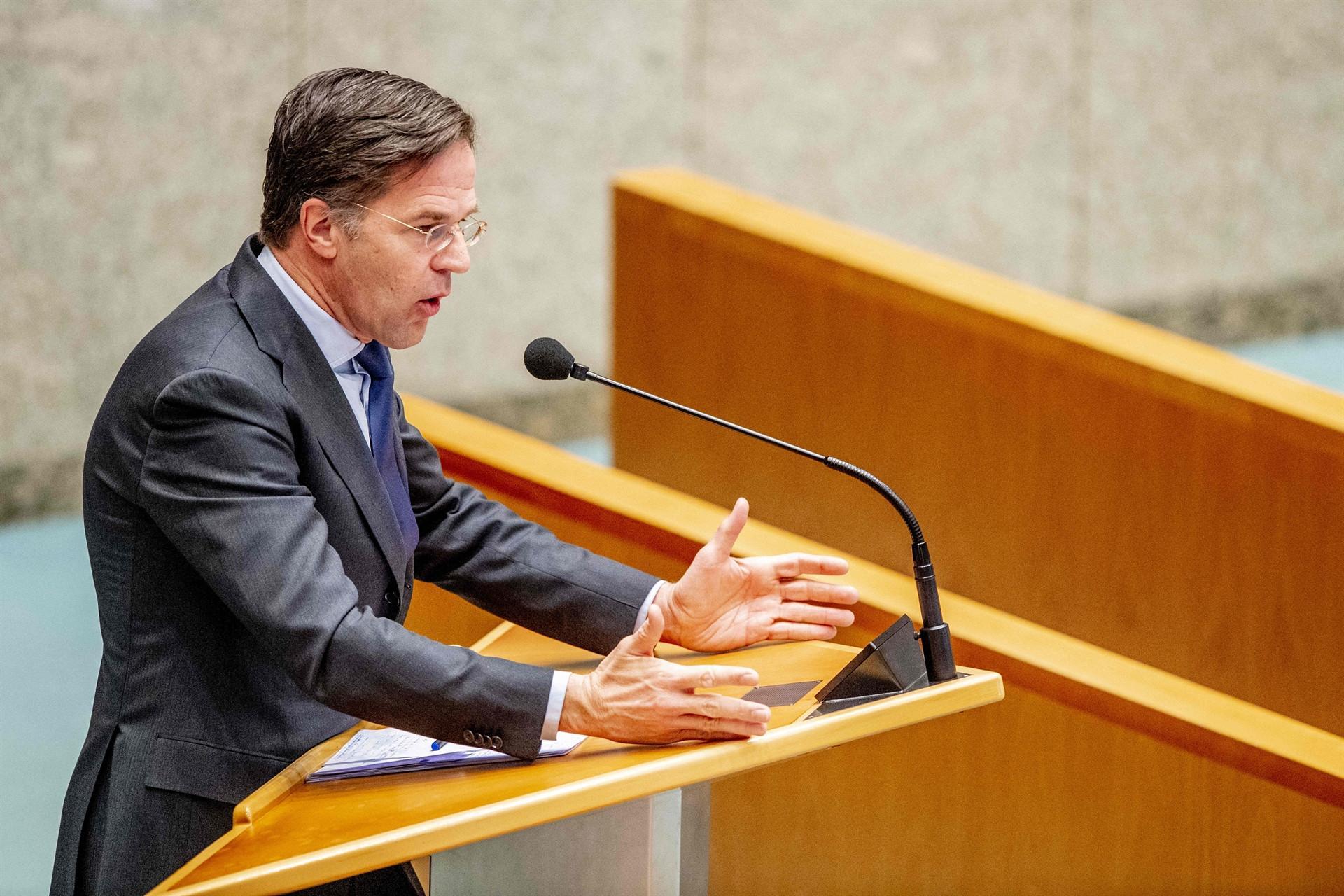
Dutch Prime Minister Mark Rutte survived one of the biggest political fights of his decade in power on April 2, narrowly winning a no-confidence vote over claims he lied about coalition talks.
Dubbed the "Teflon premier" for his ability to dodge scandal, Rutte will however remain under pressure after every party except his own supported a separate motion in parliament condemning his behaviour.
Rutte, whose VVD party won the most seats in elections last month based on his handling of the coronavirus pandemic, was accused of covering up efforts to rein in an outspoken MP during coalition negotiations.
"I will continue as prime minister, I will work terribly hard to regain trust," Rutte told parliament after the no-confidence vote.
He was supported by the two main parties that formed part of his previous coalition, the centre-left D66 and centre-right Christian Democratic Appeal (CDA), while all opposition parties voted against him.
Rutte is one of Europe’s longest-serving leaders after German Chancellor Angela Merkel and Hungarian premier Viktor Orban, and will become the Netherlands’ longest-serving PM if he is still in power at the end of 2022.
Coalition talks were already expected to take until the early summer but may now drag on even longer.
The row erupted last week when coalition talks were halted after one negotiator rushed out of parliament after learning she had tested positive for COVID-19, and the notes she was carrying were snapped by a photographer.
The name of CDA lawmaker Pieter Omtzigt’s name appeared in the notes with the words "position elsewhere" - widely seen as meaning that he should be given a ministerial post to keep him quiet.
Omtzigt was a whistleblower in a childcare scandal that caused Rutte’s previous government to resign en masse in January, leaving Rutte in his current role of caretaker prime minister.
That scandal involved thousands of parents falsely accused of child benefit fraud. Some were racially profiled.
Rutte told the media at the time he had not discussed a job for Omtzigt - but on April 1 he admitted that he had "remembered that wrong", while documents from the talks showed he had discussed making Omtzigt a minister.
Fuelling the sense of mystery was Rutte saying that he had only remembered after receiving a phone call on April 1 morning - from a source whom he refused to identify.
"I did not lie," Rutte told parliament ahead of the no-confidence motion, which was trending on social media in the Netherlands under the hashtag #omtzigtdebat and carried live on local TV channels.
His rivals quickly pounced.
"The prime minister shamelessly lied to the Netherlands for a week. But after ten years of government, the truth has caught up with him," far-right leader Geert Wilders, whose PVV party has the third most seats, said in parliament.
"How will you regain confidence?" asked Sigrid Kaag, the leader of the D66 party which came second in the election.
Rutte has survived a series of scandals and no-confidence votes in the past, earning him the nickname in the Netherlands of the "Teflon Premier", after the non-stick frying pan coating.
Critics however pointed out that he also has a habit of claiming memory lapses during scandals such as the bombing of Iraqi civilians by the Dutch military and a row over tax dividends for companies.